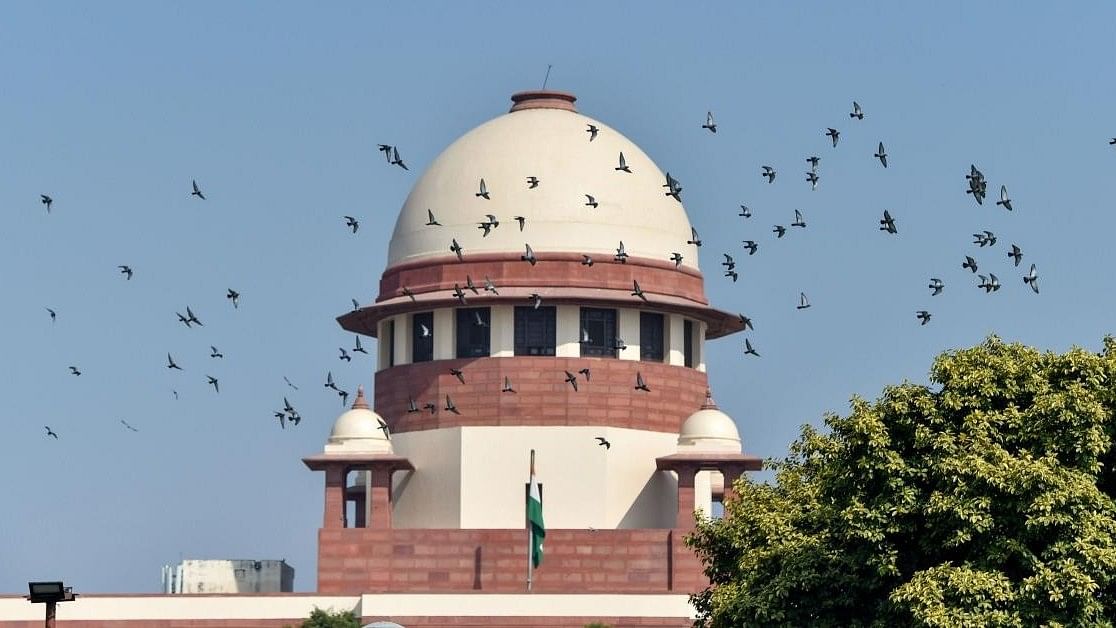
A view of the SC.
Credit: PTI Photo
New Delhi: The Supreme Court is scheduled to pronounce on Tuesday its judgment a plea by Anjum Kadari and others against the Allahabad High Court's judgment of March 22, 2024 decision, which struck down the UP Madrasas Act, 2004 as unconstitutional and violative of the principle of secularism.
A bench of Chief Justice of India D Y Chandrachud and Justices J B Pardiwala and Manoj Misra would render its judgment on November 5.
The court had reserved its judgment on October 22, observing that religious instructions are never an anathema in the country, as it is available not just for the Muslims, but for Hindus, Sikhs, Christians etc and the country ought to be a melting pot of cultures, civilizations, and religions.
"In fact, the answer to ghettoisation is to allow people to come to the mainstream and to allow them to come together. Otherwise, what we essentially would be doing is to keep them in silos," the court had said.
The UP government, which did file appeal, also contended that the High Court should have only struck down the provisions which are violative of the fundamental rights instead of nullifying the entire regulatory framework.
During the hearing, the court observed the students of Madrasas should receive quality education but to throw out the Act is like throwing out the baby with the bathwater.
The bench said secularism means to live and let live.
The bench and also observed striking down the entire Act would mean that the Madrasas would remain unregulated.
"Is it not in our national interest that the Madrasas are regulated? One cannot wish away 700 yrs of history like this. Suppose we uphold the HC order, the parents of children will still send them to Madrasa, it will just be a silo without any legislative intervention," the bench had said.
The court said the Act gave rule-making powers to the State to lay down standards.
To an argument that Madrasa was not helping in mainstreaming, the bench pointed out religious instruction is not unique to Muslims, there are institute training Buddhist monks, as what is being argued in the context of Islam will apply across all religions in India right from Ved Pathshalas to institutions training Buddhist monks, Jain priests e
